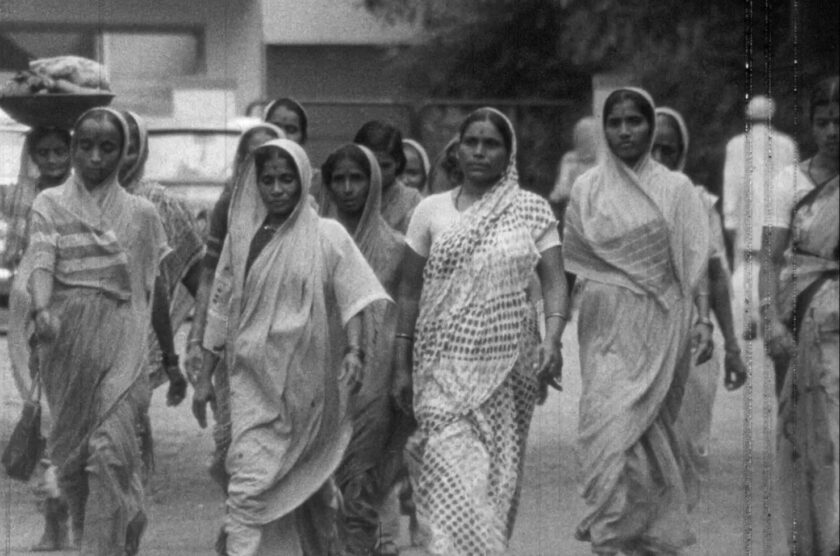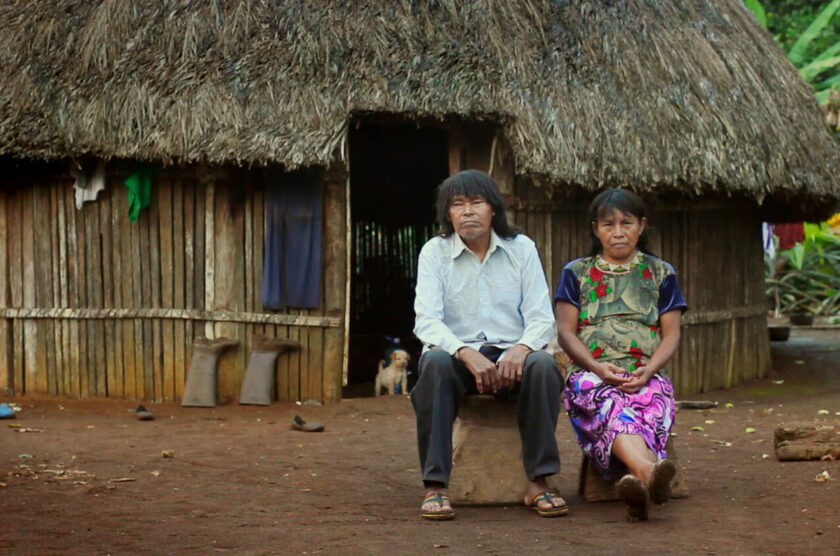Molkarin (Maid Servant)
by Yugantar
India, 1981
synopsis
Molkarin exposes the oppressive working conditions of thousands of domestic workers in Pune. Through re-enactments of significant moments of the original process of unionising, the film narrates the coming together of women workers and union activists to form the Pune Shahar Molkarin Sanghatana (Pune City Domestic Workers Union) to fight for their rights. Their unionising process, reflections on their work conditions and the myriad new questions raised that went beyond issues of work and payment, drew the attention of many. Feminist activists from different backgrounds were inspired, joined and supported the struggle. The Yugantar collective too recognised this as a moment that allowed deeper explorations of feminist consciousness across class and caste. As Yugantar’s first film, Molkarin inaugurates the group’s focus on the power of processes of collectivization, through gathering on the streets, spontaneous strike actions, organised assemblies and long meetings – sitting together sharing experiences, debating, strategizing, arguing and laughing. Domestic workers, mainly Dalit and rural migrants to the city, reflect on their low payment, their lack of security and the normalised humiliating behaviour of their employers, exposing also the participation of middle class women in working class women’s oppression.
about the director
Yugantar is considered India’s first feminist film collective. Founded by Deepa Dhanraj, Abha Baiya, Navroze Contractor and Meera Rao in 1980 the collective developed four films together with existing or ensuing women’s groups: with domestic workers in Pune (Molkarin, 1981), female factory workers in Nipani (Tambaku Chaakila Oob Aali / Tobacco Embers, 1982), with Stree Shakhti Sanghatana, a feminist research and activist collective in Hyderabad (Idi Katha Maatramena / is this just a story?, 1983) and with members of the Chipko environmental movement (Sudesha, 1983).
The revolutionary energy on university campuses at the time, civil liberty and radical left movements, land right struggles and an overall sense of possibilities and burst of creative activism that came with the emergence of the autonomous women’s movement during the post-Emergency period sparked the foundation of the collective in 1979/80. The collective’s name carrying the air of radical historical transformation – Yugantar/ Change to a New Era.
Yugantar’s film works are also amongst the pioneers of state independent documentary filmmaking in India that established itself increasingly during the 1980s and 90s and thus need to be addressed as part of a nascent movement of independent political documentary in India. The acknowledgment of Yugantar’s work is vital in order to stress the undisputable importance of women filmmaker’s particular approach and the impact of feminist discourse on innovations in documentary practices and aesthetics within the Indian context and beyond.
Today we might view Yugantar’s films as living and continuously reactivated documents, as part of a continuously metabolising feminist archive that takes its place in the Now and in the future.




